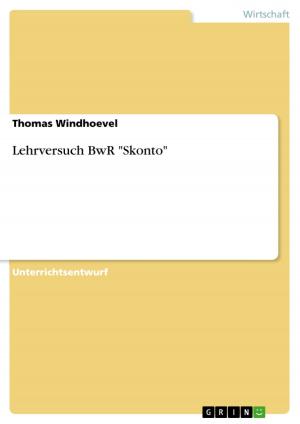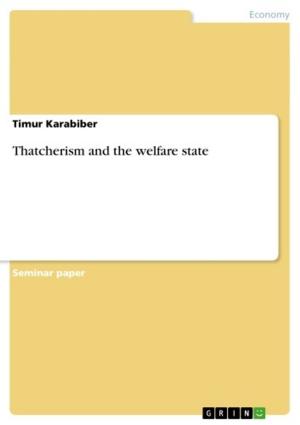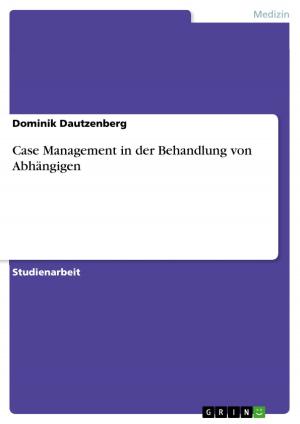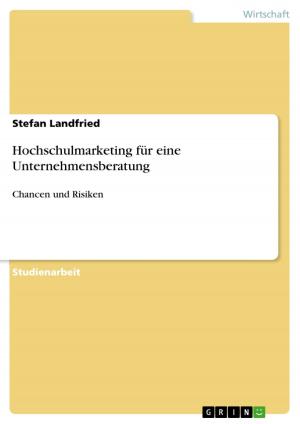Little Britain in America
Minorities under subverted scrutiny
Nonfiction, Reference & Language, Study Aids, ESL, Foreign Languages| Author: | Carol Szabolcs | ISBN: | 9783640295548 |
| Publisher: | GRIN Verlag | Publication: | March 30, 2009 |
| Imprint: | GRIN Verlag | Language: | English |
| Author: | Carol Szabolcs |
| ISBN: | 9783640295548 |
| Publisher: | GRIN Verlag |
| Publication: | March 30, 2009 |
| Imprint: | GRIN Verlag |
| Language: | English |
Seminar paper from the year 2008 in the subject English Language and Literature Studies - Culture and Applied Geography, grade: 2,0, University of Cologne (Englisches Seminar), course: Minorities, 14 entries in the bibliography, language: English, abstract: Without any doubt Little Britain is one of the most observed British comedy productions of this decade. For three seasons the audience has been entertained by witty remarks about minorities in British society: immigrants, gays, lesbians, transvestites, people with special needs, or people of different race and ethnicity - all of them became the butt of jokes. On the contrary 'classic' jokes about for instance politics and politicians, celebrities or the Royal Family appeared as support to the main-characters rather than being core topics of the sketches presented in each episode. Along with such a success criticism and questions arise concerning the alleged concept that the writers Matt Lucas and David Walliams follow: entertainment on behalf of minorities. Johann Hari (2005), commentator of The Independent, criticizes that 'the show is cluttered with ugly prejudices'. Fergus Sheppard (2005) of The Scotsman exclaims that Little Britain is 'not busting down prejudice, [...] it's probably just reinforcing it.' Does Little Britain truly entertain on behalf of minorities? Do the jokes imply hidden racism, contempt and hate towards minorities, which consolidate biases towards the minor parts of society? Because of its success in and outside of the United Kingdom, the BBC and the producers have decided to launch this comedy program in the United States, too. Although it would be interesting to ask whether Little Britain will be able to maintain its concept in front of the American viewers, this work will not intend to make any predictions. Instead it will project the concepts of the sketches, and take a look at minorities that could become the butts of jokes and name prejudices towards minorities in the United States that need to be dismantled.
Seminar paper from the year 2008 in the subject English Language and Literature Studies - Culture and Applied Geography, grade: 2,0, University of Cologne (Englisches Seminar), course: Minorities, 14 entries in the bibliography, language: English, abstract: Without any doubt Little Britain is one of the most observed British comedy productions of this decade. For three seasons the audience has been entertained by witty remarks about minorities in British society: immigrants, gays, lesbians, transvestites, people with special needs, or people of different race and ethnicity - all of them became the butt of jokes. On the contrary 'classic' jokes about for instance politics and politicians, celebrities or the Royal Family appeared as support to the main-characters rather than being core topics of the sketches presented in each episode. Along with such a success criticism and questions arise concerning the alleged concept that the writers Matt Lucas and David Walliams follow: entertainment on behalf of minorities. Johann Hari (2005), commentator of The Independent, criticizes that 'the show is cluttered with ugly prejudices'. Fergus Sheppard (2005) of The Scotsman exclaims that Little Britain is 'not busting down prejudice, [...] it's probably just reinforcing it.' Does Little Britain truly entertain on behalf of minorities? Do the jokes imply hidden racism, contempt and hate towards minorities, which consolidate biases towards the minor parts of society? Because of its success in and outside of the United Kingdom, the BBC and the producers have decided to launch this comedy program in the United States, too. Although it would be interesting to ask whether Little Britain will be able to maintain its concept in front of the American viewers, this work will not intend to make any predictions. Instead it will project the concepts of the sketches, and take a look at minorities that could become the butts of jokes and name prejudices towards minorities in the United States that need to be dismantled.















